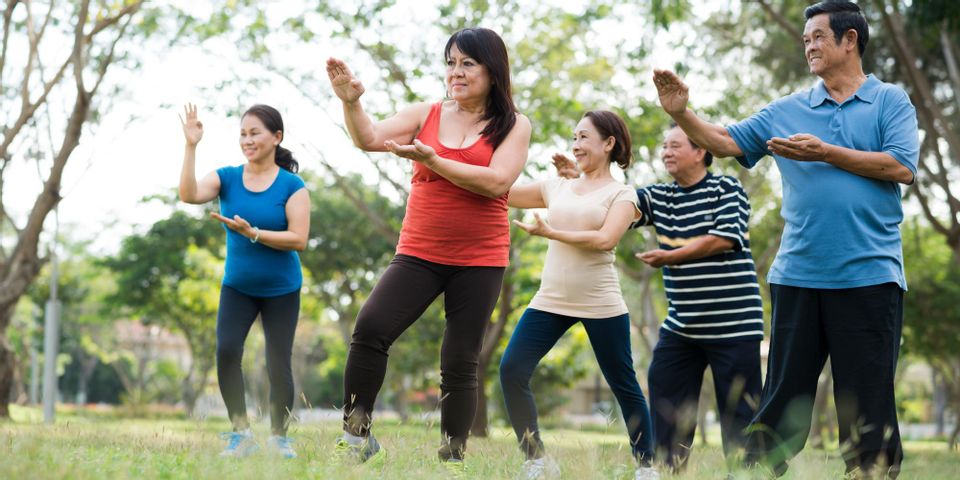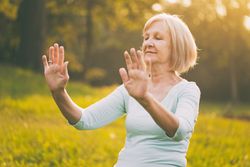3 Benefits of Tai Chi for Parkinson's Patients

Parkinson's disease is a progressive nervous system disorder. Early symptoms such as barely noticeable tremors worsen until a patient's speech, movement, and mobility are impacted. While there is no known way to prevent Parkinson's, patients can manage certain symptoms and help maintain their independence for longer periods through certain exercises, particularly Tai Chi. Below are three benefits of practicing Tai Chi for people with Parkinson’s.
3 Ways Tai Chi Helps People With Parkinson’s Disease
1. Improve Mobility
Parkinson's impairs posture and balance, resulting in decreased functional ability. Some patients may exhibit a visibly stooped posture. Tai Chi has been shown to be more effective than resistance training and stretching exercises as a means of counteracting movement impairment. This is likely because Tai Chi is a balance-based exercise, requiring steady coordination of the limbs and engaging the core.
2. Prevent Falls
 Since Parkinson’s deteriorates a person’s sense of balance, it also increases the risk of dangerous falls. Falls are the primary reason for emergency hospital visits by individuals with Parkinson's. The older people get, the more dangerous such falls become: Bones lose density and get more fragile with age, making them more prone to breakage. By improving one’s balance, Tai Chi reduces the risk of falls.
Since Parkinson’s deteriorates a person’s sense of balance, it also increases the risk of dangerous falls. Falls are the primary reason for emergency hospital visits by individuals with Parkinson's. The older people get, the more dangerous such falls become: Bones lose density and get more fragile with age, making them more prone to breakage. By improving one’s balance, Tai Chi reduces the risk of falls.
3. Enhance Mental Health
Living with a chronic illness takes a toll on a person's mental health. Tai Chi may also help Parkinson's patients deal with depression and emotional changes that accompany the illness. Tai Chi has been shown to have beneficial effects on psychological well-being, addressing issues like depression, anxiety, and stress.
Connecticut Advocates for Parkinson's offers group exercise classes, including Tai Chi, for individuals with Parkinson's. This registered non-profit charity offers support for patients, as well as for their families and friends. Their compassionate volunteers are dedicated to providing practical guidance to patients and caregivers — for example, through their helpful guide on living with the illness and Parkinson’s care, which is available for free via their website. You can join their community of caring online to benefit from additional resources. If you have questions about their offerings or how to get involved, call (860) 266-6040.
About the Business
Have a question? Ask the experts!
Send your question

